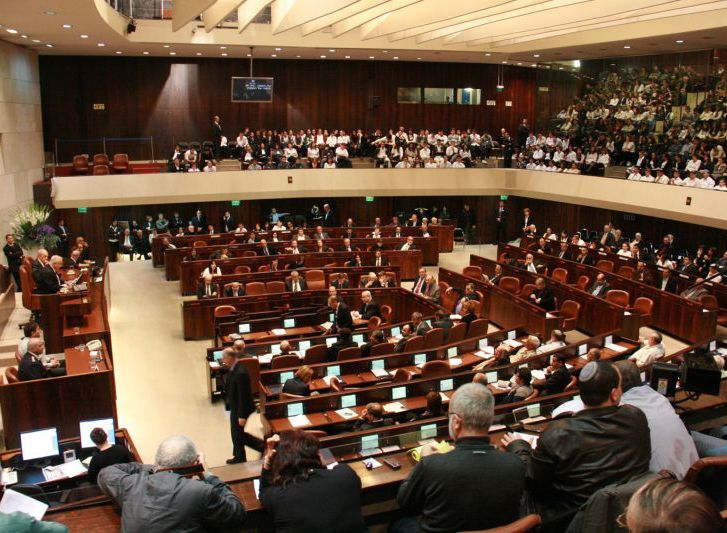Adalah: Application of Absentees’ Property Law to Palestinian West Bank Residents with Properties in East Jerusalem Violates Israeli and International Law

The Supreme Court of Israel will hold a hearing on 10 September 2013 on the application of the Absentees’ Property Law-1950 to Palestinian West Bank residents who own properties in East Jerusalem, and the transfer of ownership of these properties to the Custodian of Absentees’ Properties. Such a move would amount to the confiscation of these properties and would allow them to be sold, thereby severing any link between the owners and their property.
In the run-up to the Supreme Court hearing, Adalah Attorney Suhad Bishara filed an amicus curiae on 4 August 2013 outlining Adalah’s legal position. Adalah argues that the Attorney General’s (AG) position – that the Absentee Property Law applies to East Jerusalem properties - undermines the status quo that has prevailed for decades, and which has been supported by successive AGs since Israel occupied the OPT in 1967. All previous AGs ruled that the Absentees’ Property Law does not apply to the East Jerusalem property of Palestinians who are resident in the West Bank.
The Absentees’ Property Law -1950 was the main legal instrument used by Israel to take possession of land and other properties belonging to internally displaced Palestinians and refugees. Under the law, any property belonging to absentees was taken by the state and passed to the Custodian of Absentee Property for guardianship, until a political solution for the refugees was reached. This law provides a very broad definition of who is an ‘absentee’; it encompasses Palestinians who fled or who were expelled to neighboring countries during and after the War of 1948. During the 1948 War, as many as 800,000 Palestinians were expelled or forced to flee from the new state of Israel.
Are West Bank Palestinians ‘absentees’?
The upcoming Supreme Court proceedings for 10 September 2013 concern four civil appeals. The Custodian of Absentee Property initiated two of these appeals in 2006, while the other two appeals were submitted in 2007 and 2009 respectively by West Bank Palestinians who own properties in East Jerusalem.
The AG’s agreement to the designation of West Bank residents as ‘absentees’ is not a result of any change in their legal status, but is an outcome of a unilateral move by Israel when it decided to annex East Jerusalem to its territory in violation of international humanitarian law (IHL), and to apply Israeli domestic law to this area.
In Adalah’s view, the decision to declare West Bank residents as ‘absentees’ is deplorable, as they never left their homes. Former AG Meni Mazuz agreed and stated in a legal opinion issued on 31 January 2005 that, “The absence of the owners of property in East Jerusalem is technical in nature, as they were turned into absentees through a unilateral decision made by the State of Israel.” Mazuz added, “The issue concerns ‘present absentees’ deprived of their right to property by the impact of the sweeping technical wording of the law.”
Adalah argued in the amicus brief that the Absentees’ Property Law was enacted in a particular political-judicial context, and it therefore cannot simply be expanded to suit the shifting geopolitical reality. In 1950, the state declared that the law was enacted as emergency and exceptional legislation that resulted directly from a state of war, and that it did not intend to continue confiscating land indefinitely. Therefore, any interpretation of the law must always be tied to the context in which it was legislated, i.e. the historical context of the Nakba, and should not seek to turn the law into a regular property law.
Clear violation of international humanitarian law (IHL)
The application of the Absentees’ Property Law to properties in East Jerusalem also violates international law. The applicable law in the case of Palestinian residents of the West Bank is IHL, which prohibits the Occupying Power (Israel) from harming the civilian property in the absence of military necessity. Further, East Jerusalem is occupied territory under international law, which does not recognize Israeli sovereignty of the area, as confirmed by the International Court of Justice (ICJ) in its Advisory Opinion of 2004 on the Separation Wall in the West Bank. Therefore, the confiscation of the property located in East Jerusalem and owned by West Bank residents constitutes a grave violation of Israel’s duties as an Occupying Power.
In Adalah’s legal opinion to the Supreme Court, Attorney Bishara argued that, “According to Israel’s decision to apply the Absentees’ Property Law to Palestinians in the West Bank, the law then would also be applicable to properties in Israel that are owned by Jewish settlers in the West Bank.” Moreover, the law does not address the legal status of the property owner, even a citizen of Israel, but rather his or her place of residency. The clear discrimination between Palestinian residents of the West Bank and Jewish settlers resident in the West Bank, in illegal settlements, constitutes a violation of the principles of non-discrimination set forth in the International Convention on the Elimination of All Forms of Racial Discrimination (CERD), which also applies to the OPT.
See the Amicus Opinion filed by Adalah to the Supreme Court (English)
(Picture: Palestinian property in East Jerusalem; Photo by Activestills)
















